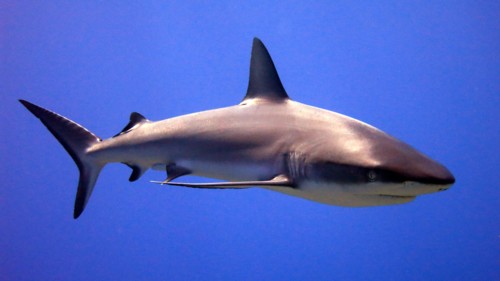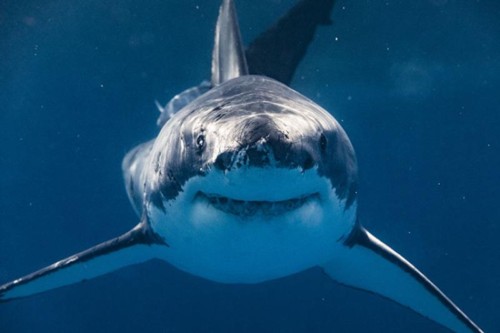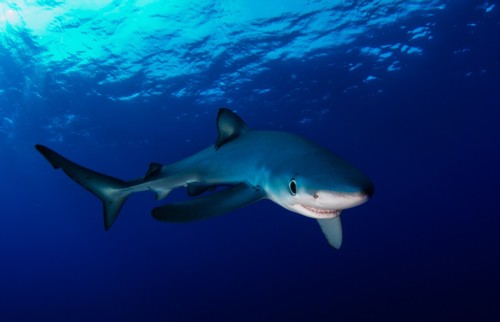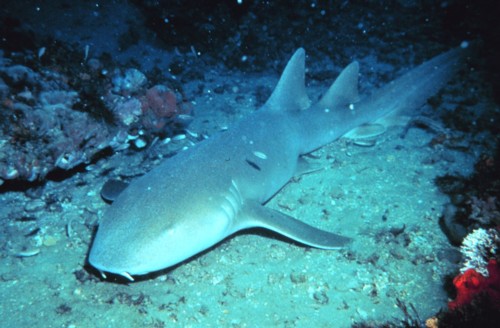

 Online Scuba Lessons |
 Online Nitrox Lessons |
Sharks!



It's a funny thing about sharks and scuba diving. Everybody
wants to see them, but nobody wants to be seen by them.
The truth is, thanks to sensational films on the subject of sharks,
these awe inspiring creatures have gotten a pretty bad rap.
Of about 250 identified species of sharks, only a handful are considered dangerous. Or, I should say, dangerous to man. Extremely well equipped for finding their prey, and a strong determination to complete the task of feeding, they present quite a serious threat to vulnerable prey.
Contrary to images of sharks constantly, tirelessly swimming the oceans gobbling up anything that moves, the shark does not feed as often as we are led to believe. But when they do, they use every sense they have to track and devour their prey. A group of sensory cells located on the sharks' snout, which appear to be large pores, are actually called the Ampullae of Lorenzini. Their function is to sense vibration, which to the shark is equated to an injured fish. Surprisingly, even the master hunter, the shark, is still most interested in an easy victim. When the prey is in closer range the shark's excellent sense of smell guides him to his target. His vision is good, but only at short range, so this is the last of the senses to come into play. The eye of the shark has a group of mirrors behind the retina enabling him to see in the dimmest light, therefore he is as proficient a hunter in the night sea as he is in the day.

O.K., by now you are asking yourself, so how does this convince me that the shark isn't a dangerous creature to me when I'm in the ocean? Well, as in life itself, no guarantees here. But remember that I said only a handful of species are known to be dangerous. And they aren't usually hungry. And, if you do your homework and study a little about shark behavior, you may learn to recognize, even enjoy, the behavior you may be privileged to witness. Yes, I said Privileged! With a capitol P! Shark fishing, both arising out of profit (shark fin soup is an extremely pricey meal in Japan!) and fear (let's kill 'em, they deserve it for what they did in that movie!) has depleted the numbers of this natural and necessary predator to an alarming degree. If this continues, in the decades to come, the only sharks you will see will be in those old Cousteau reruns.
I've been very fortunate in my 30 or so years of diving, to have seen a great many of these magnificent creatures. Some small and adorable, like the little pygmy sharks that are plentiful in the Florida Bay. And the huge, frightening bull sharks off Key West. And the hundreds of sharks that patrol the reefs of Rangiroa in numbers so large they defy you to count them. And the ones I hand fed, like birds in the park, one incredible afternoon in the South Pacific. And I'm still here to tell about it, no thanks to any particular skill of my own.
Almost certainly, during every Basic Scuba Diver
class, someone will sheepishly ask "Will we see
sharks?" And I answer silently to myself "Gee, I hope so!"
Dive often and dive safe.
Bwana
![]()

Aquastrophics Dive & Travel
(928) 680 - DIVE (3483)